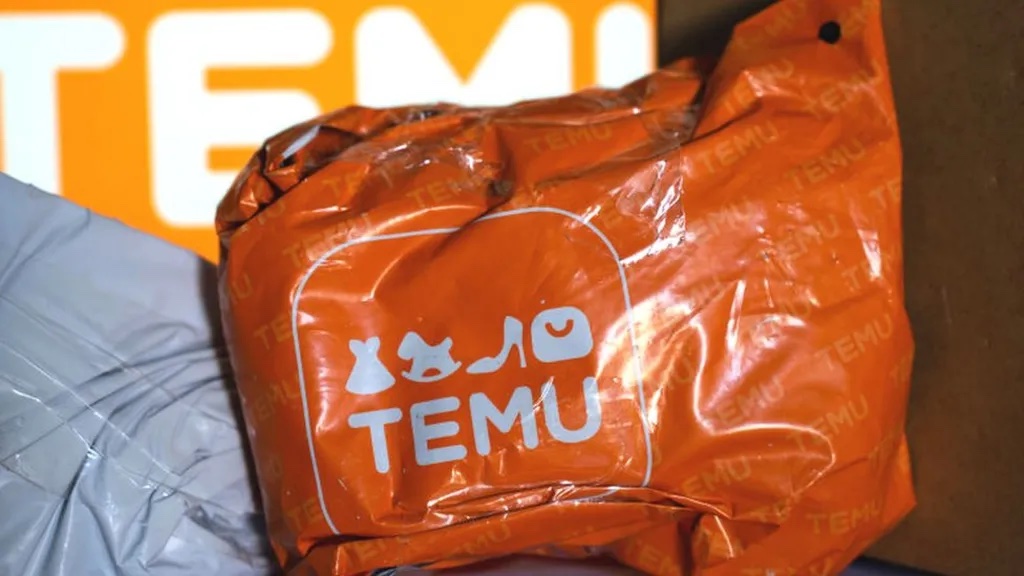How Temu is shaking up the world of online shopping – BBC

|
Getting your Trinity Audio player ready...
|
SOURCE: Sam Gruet | BBC
A record 123 million Americans tuned into this year’s Super Bowl.
But as well as getting the nation’s biggest sporting event, a blockbuster halftime performance and several camera cutaways of Taylor Swift in the crowd, they also got six 30-second commercials for Temu – a Chinese-owned e-commerce company.
The shopping giant has been criticised by politicians in the UK and US – a US government investigation finding an “extremely high risk” that products sold on Temu could have been made with forced labour.
Temu says it “strictly prohibits” the use of forced, penal, or child labour by all its merchants.
The company, which sells everything from clothes to electronics and furniture, first launched in the US in 2022 and later in the UK and the rest of the world.
Since then, it has consistently topped global app download charts, with just under 152 million Americans using it every month, according to data gathered by analyst SimilarWeb.
It’s “Amazon on steroids,” says retail analyst Neil Saunders, and with the tagline “shop like a billionaire” it has exploded in popularity, shipping to around 50 countries worldwide.

A typical 30-second Super Bowl commercial costs around $7m (£5.5m), during this year’s event Temu had six of them.
“It’s a lot of money for a very, short commercial,” Mr Saunders says.
“But it is seen by an enormous number of people and we know that after that commercial Temu’s downloads spiked,” he adds.
SimilarWeb data suggests individual visitors to the platform worldwide were up by nearly a quarter on the day of the Super Bowl compared with the previous Sunday, with 8.2 million people browsing the website and app. In the same period, Amazon and Ebay’s visitors were down by 5% and 2% respectively.
“They’ve also spent a lot of money on micro-marketing, persuading influencers to push products and to suggest buying things on the platform via social channels like TikTok and YouTube,” says Mr Saunders.
These influencers typically have fewer than 10,000 followers according to Ines Durand, an e-commerce expert at SimilarWeb.
“Micro-influencers have strong communities, so their endorsement means a strong trust towards these products,” she explains.
Temu is owned by Chinese giant PDD Holdings – “a monster in Chinese e-commerce,” according to Shaun Rein, founder of the China Market Research Group.
“Throughout China, everyone buys products on Pinduoduo, from speakers to t-shirts or socks,” he says.
The company consistently trades places with rival Alibaba for the top spot of most valuable Chinese firm listed on a US stock exchange. Its current worth sits at just under $150bn (£117bn).
With the Chinese consumer market under its spell, PDD Holdings expanded overseas with Temu, using the same model that had ensured its previous success. According to Mr Rein, who is based in Shanghai, the firm has become a great source of pride and patriotism.
“They’re proud that Chinese companies can slay the e-commerce dragons from the United States like Amazon,” he adds.
A quick scroll through the Temu app or website will bring up anything from steel-toecap trainers to a device designed to help the elderly and pregnant women put on socks. A menagerie of manufactured goods, almost entirely produced in factories in China, Mr Rein explains.
“Temu use an amazing, system that relies on, heavy data collection at scale,” says Ines Durand.
“They collect data on consumer trends, the most searched and clicked products, which they give to individual manufacturers.”
Ms Durand says that while Amazon sells this data to manufacturers at a premium, Temu gives it to producers free of charge – information they use to “test the market” with a relatively small number of products.

A third of parcels that came into the US last year under a shipping loophole known as the de minimis threshold were from Temu and competitor Shein, according to a report from US Congress.
This article was originally published on BBC – navigate to the original article here.


